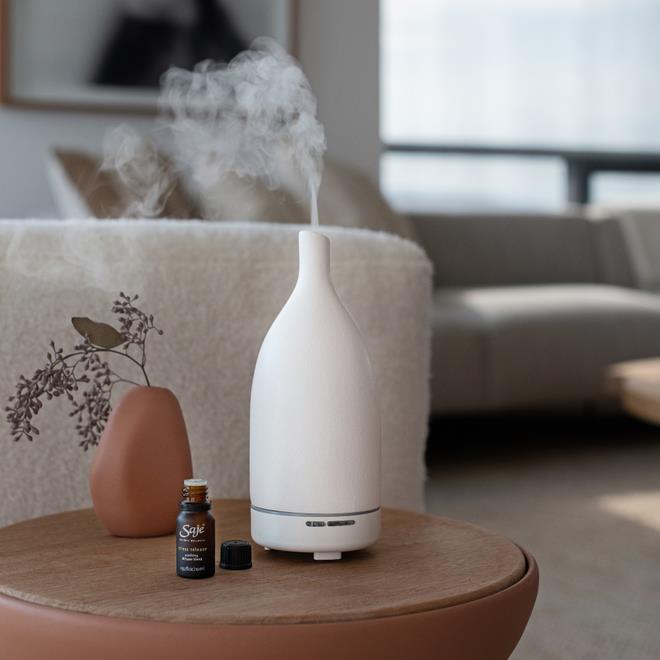
In today's fast-paced world, stress has become an inevitable part of our lives. However, finding effective ways to manage and relieve stress is crucial for our overall well-being.
This article explores 7 simple steps to holistic stress relief, focusing on the integration of aromatherapy with other complementary practices. By combining the power of aromatherapy with practices such as yoga, meditation, massage, deep breathing, healthy eating, regular exercise, and adequate sleep, you can create a harmonious and balanced approach to stress management that promotes both physical and mental well-being.
Yoga and Aromatherapy
Yoga and aromatherapy complement each other in promoting relaxation and well-being. Both practices have long been recognized for their ability to reduce stress and enhance overall health. When combined, yoga and essential oils create a powerful synergy that can deepen the yoga experience and amplify its benefits.
Essential oils, derived from plants, have unique therapeutic properties that can enhance relaxation during yoga practice. By incorporating essential oils into yoga routines, practitioners can create a calming and soothing environment, stimulating the senses and promoting a deeper state of relaxation.
Certain essential oils, such as lavender or chamomile, are known for their calming properties and can help to alleviate anxiety and stress. Others, like eucalyptus or peppermint, can invigorate and energize the mind and body, enhancing the overall yoga experience.
Incorporating aromatherapy into yoga practice allows individuals to tap into the power of scent to enhance relaxation, focus, and mindfulness. By using essential oils, practitioners can create a sacred space for their practice, promoting a deeper connection between mind, body, and spirit.
Meditation and Aromatherapy
The integration of aromatherapy with meditation further enhances the benefits of both practices, allowing individuals to deepen their relaxation and achieve a greater sense of inner peace.
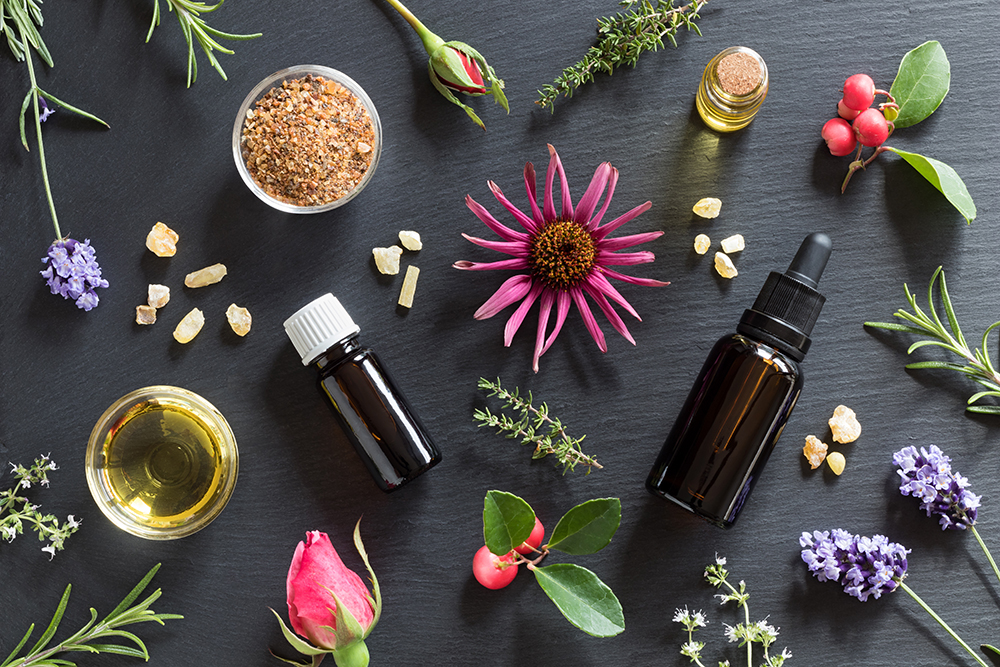
Meditation is a powerful tool for reducing stress and promoting mindfulness, and when combined with the use of essential oils, it can enhance the overall experience.
Aromatherapy can be incorporated into meditation by diffusing essential oils or applying them topically before or during the practice. The inhalation of certain essential oils can help calm the mind, promote focus, and create a peaceful atmosphere. Lavender, frankincense, and chamomile are popular choices for their calming properties.
Massage and Aromatherapy
Massage therapy, combined with the use of essential oils, offers a holistic approach to stress relief and relaxation. When it comes to massage techniques, there are a variety of options to choose from, depending on your specific needs.
Swedish massage, for example, uses long, gliding strokes to promote overall relaxation and ease muscle tension. Deep tissue massage, on the other hand, targets the deeper layers of muscle and connective tissue to address chronic pain and tension.
By incorporating essential oil blends into the massage, the benefits can be enhanced. Lavender oil is known for its calming properties, while peppermint oil can help alleviate muscle soreness. The combination of massage and aromatherapy creates a synergistic effect, helping to soothe both the body and the mind.
Aromatherapy and Deep Breathing
Deep breathing is a powerful tool for stress relief that can be enhanced by the use of aromatherapy. When we take slow, deep breaths, it signals our body to relax and activates the parasympathetic nervous system.
Combining deep breathing with the inhalation of calming essential oils can further enhance relaxation and promote a sense of well-being.
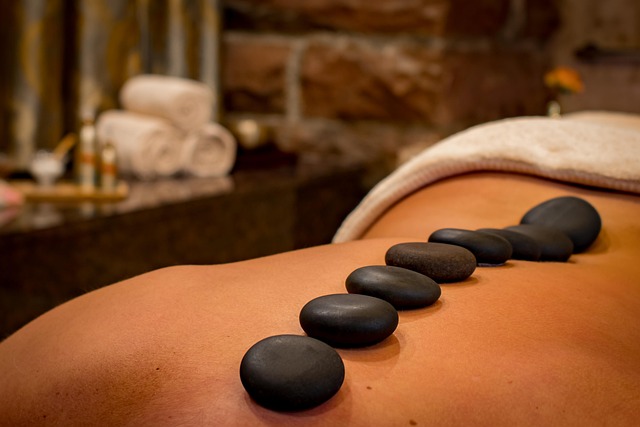
In this article, we will explore the benefits of deep breathing and various aromatherapy techniques that can be used for relaxation.
Benefits of Deep Breathing
By incorporating deep breathing techniques with the use of aromatherapy, individuals can experience a multitude of benefits for holistic stress relief.
Deep breathing is a powerful mindfulness practice that helps bring our attention to the present moment and calms the mind. When combined with the soothing scents of essential oils, the effects can be even more profound.
Deep breathing engages the parasympathetic nervous system, which promotes relaxation and reduces stress. It increases oxygen flow, lowers blood pressure, and slows down the heart rate, bringing a sense of calm and grounding.
Aromatherapy enhances these benefits by stimulating the olfactory system, which is connected to the emotional centers of the brain.
The combination of deep breathing and aromatherapy creates a synergistic effect, providing individuals with an effective and enjoyable stress reduction technique.
Aromatherapy Techniques for Relaxation
Incorporating the use of aromatherapy in conjunction with deep breathing techniques enhances the relaxation and stress-reducing benefits experienced by individuals. By combining these two practices, individuals can achieve a deeper state of calmness and tranquility.
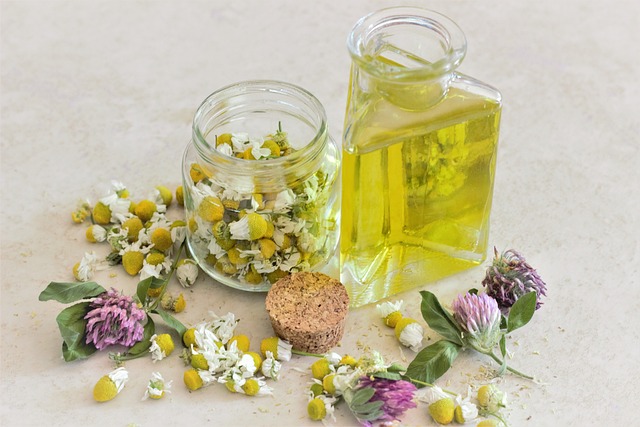
Here are three ways in which aromatherapy and deep breathing can work together to promote relaxation:
- Aromatherapy oils: Inhaling the soothing scents of essential oils can help relax the mind and body. Lavender, chamomile, and ylang-ylang are popular choices known for their calming properties. Adding a few drops of these oils to a diffuser or a warm bath can create a serene environment conducive to deep relaxation.
- Mindful breathing techniques: Deep breathing exercises, such as diaphragmatic breathing and alternate nostril breathing, can help slow down the heart rate, reduce muscle tension, and promote a sense of calm. Combining these techniques with aromatherapy can enhance their effectiveness and deepen the relaxation experience.
- Yoga and mindfulness practices: Aromatherapy can be incorporated into yoga and mindfulness routines to create a multi-sensory experience. Applying essential oils to pulse points or using them during savasana (corpse pose) can enhance the calming effects of these practices, helping individuals achieve a state of deep relaxation and inner peace.
Aromatherapy and Healthy Eating
To maximize the benefits of aromatherapy, it is essential to complement it with a balanced and nourishing diet. Healthy eating plays a vital role in promoting overall well-being and reducing stress levels. By incorporating nutritious foods into your diet, you can enhance the effectiveness of aromatherapy and support your body's natural healing processes.
When it comes to healthy cooking, consider using essential oil blends to add flavor and therapeutic benefits to your meals. For example, adding a drop of lemon essential oil to your water can aid digestion and detoxification. Additionally, using essential oils like lavender or chamomile in cooking or baking can promote relaxation and calm.
Aromatherapy and Regular Exercise
Regular exercise is not only beneficial for our physical health, but it can also have a positive impact on our mental well-being.
When combined with aromatherapy, exercise becomes an even more powerful stress-relieving practice.
The synergy of scents can enhance our workout experience, helping us feel more energized, focused, and motivated.
Benefits of Combining
By combining the practices of aromatherapy and regular exercise, individuals can experience a multitude of benefits that contribute to overall well-being and stress relief. Incorporating both aromatherapy and exercise into one's routine can enhance the effectiveness of stress management techniques and provide a holistic approach to reducing stress levels.
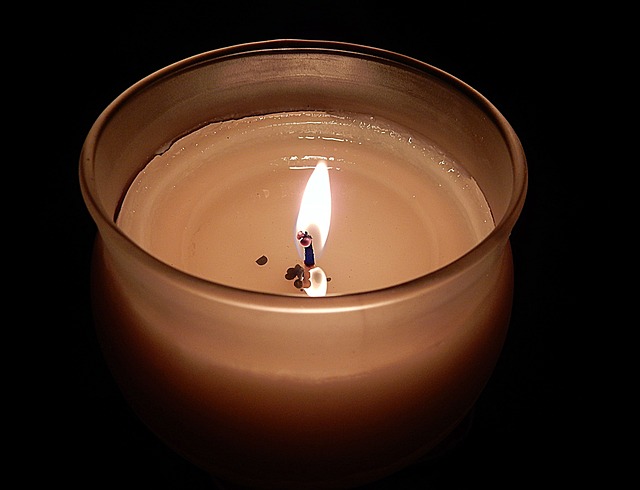
Here are three key benefits of combining aromatherapy and regular exercise:
- Increased relaxation: Aromatherapy, with its use of essential oils, can promote relaxation and calmness. When combined with exercise, which releases endorphins and reduces tension in the body, individuals can experience a deeper sense of relaxation and stress relief.
- Improved mood: Both aromatherapy and exercise have been shown to boost mood and alleviate symptoms of anxiety and depression. By combining these practices, individuals can enhance their overall emotional well-being and experience a greater sense of happiness and contentment.
- Enhanced physical and mental well-being: Regular exercise improves cardiovascular health, strengthens the immune system, and enhances cognitive function. When combined with the healing properties of aromatherapy, individuals can achieve a state of balance and well-being that supports their overall health and vitality.
Synergy of Scents
The combination of aromatherapy and regular exercise creates a powerful synergy of scents that enhances stress relief and overall well-being. Aromatherapy, also known as scent therapy, has long been recognized for its various benefits, such as reducing anxiety, improving mood, and promoting relaxation. When combined with regular exercise, these benefits are further amplified, providing a holistic approach to stress relief.
Engaging in physical activity not only releases endorphins, the body's natural feel-good chemicals, but it also increases blood circulation and oxygen flow throughout the body. This heightened state of physical well-being enhances the absorption and effectiveness of essential oils used in aromatherapy. As a result, the scents become more potent, allowing for a deeper and more profound experience of relaxation and stress relief.
The synergy of scents in aromatherapy and regular exercise works hand in hand to create a harmonious balance between the mind and body. The invigorating scents stimulate the senses while the physical activity promotes mental clarity and emotional well-being. This integration of scent therapy and exercise fosters a sense of freedom and empowerment, allowing individuals to take control of their stress levels and achieve a state of holistic well-being.
Enhancing Workout Experience
The integration of aromatherapy and regular exercise elevates the workout experience by invigorating the senses and promoting a deeper sense of well-being. By incorporating aromatherapy into your workout routine, you can enhance the benefits of exercise and improve your overall performance. Here are three ways in which aromatherapy can enhance your workout experience:
- Improving focus: Certain scents, such as peppermint and eucalyptus, have been shown to improve focus and mental clarity. By diffusing these essential oils or using scented products during your workout, you can stay more focused and engaged, maximizing the effectiveness of your exercise session.
- Reducing muscle soreness: Aromatherapy oils like lavender and chamomile possess anti-inflammatory properties that can help reduce muscle soreness and promote faster recovery after a workout. Applying these oils topically or using them in a post-workout massage can alleviate muscle tension and soreness, allowing you to bounce back quicker.
- Enhancing relaxation: Aromatherapy can create a calming and relaxing environment, helping to reduce stress and anxiety during your workout. Scents like lavender, bergamot, and ylang-ylang can promote a sense of tranquility, making your exercise experience more enjoyable and rejuvenating.
Aromatherapy and Adequate Sleep
One key step to achieving adequate sleep is incorporating aromatherapy into your nightly routine. Adequate sleep is essential for both physical and mental well-being, and it plays a crucial role in stress reduction.
Aromatherapy, the use of essential oils derived from plants, can enhance sleep quality and promote relaxation. Certain essential oils, such as lavender, chamomile, and bergamot, have calming properties that can help to soothe the mind and body before bedtime. By diffusing these oils in your bedroom or using them in a warm bath or massage, you can create a peaceful and inviting atmosphere that encourages restful sleep.

In addition to their calming effects, essential oils can also address specific sleep-related issues, such as insomnia or sleep disturbances. For example, the scent of lavender has been found to improve sleep quality and reduce insomnia symptoms.
Incorporating aromatherapy into your nightly routine is a simple and effective way to promote adequate sleep and reduce stress. By creating a relaxing environment and using essential oils known for their sleep-enhancing properties, you can improve your sleep quality and wake up feeling refreshed and rejuvenated.
Frequently Asked Questions
How Do I Choose the Right Yoga Poses to Combine With Aromatherapy for Stress Relief?
Combining yoga and aromatherapy for stress relief involves selecting yoga poses that promote relaxation and pairing them with essential oils known for their calming properties. The benefits of essential oils in yoga practice include enhanced relaxation and stress reduction.
Can Meditation and Aromatherapy Be Used Together to Alleviate Chronic Pain?
Meditation and aromatherapy can be used together to alleviate chronic pain. Essential oils have been shown to have analgesic properties, while meditation can help calm the mind and reduce stress, which can also contribute to pain relief.
Is It Necessary to Use Specific Massage Techniques When Incorporating Aromatherapy for Stress Relief?
When incorporating aromatherapy for stress relief, it is beneficial to use specific massage techniques. These techniques can enhance the effects of aromatherapy, promoting relaxation, reducing tension, and providing a holistic approach to stress management.
How Can Aromatherapy and Deep Breathing Techniques Be Combined to Relieve Anxiety?
Combining aromatherapy and deep breathing techniques can effectively relieve anxiety. Aromatherapy benefits include promoting relaxation and reducing stress, while deep breathing techniques help calm the mind and regulate the body's response to stress.
Are There Specific Essential Oils That Should Be Used in Conjunction With Healthy Eating to Enhance Stress Relief?
Essential oils and healthy eating form a powerful combination for stress relief. The synergy between these practices works to reduce stress by calming the mind and nourishing the body, providing a holistic approach to overall well-being.

 Business & FinanceHealth & MedicineTechnologyLifestyle & CultureScience & EnvironmentWorld NewsPrivacy PolicyTerms And Conditions
Business & FinanceHealth & MedicineTechnologyLifestyle & CultureScience & EnvironmentWorld NewsPrivacy PolicyTerms And Conditions
